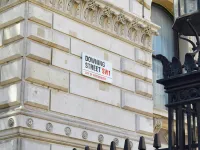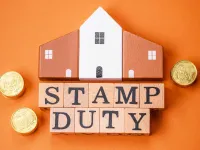Property in buildings over five storeys
Due to the new Building Safety Act 2022, we will no longer be acting on any conveyancing matters which involve a flat in a block of over four storeys (11 metres) in height.
The law is complex on this right now, and until further guidance is issued, we will not be acting on these types of matters.
Top tips to sell your home
Selling your home can be stressful. But there are ways to reduce the stress and to pave the way for a smooth journey.
How to choose the right estate agent when you sell your home
The right estate agent can make the world of difference to how quickly you sell your property and even during the conveyancing process.
Search online, on websites such as www.rightmove.co.uk and www.zoopla.co.uk, to give yourself an idea of which estate agents are popular in your area. Look at similar properties in your area and you’ll see a realistic asking price. Discuss the asking price with the estate agent when they come to value your house. It’s worth making appointments with two or three local agents to decide who you prefer to leave in charge of your property sale.
If any of your friends and colleagues have moved recently or are thinking of moving, have a chat with them. They may be able to point you in the direction of a good estate agent. Look for estate agents’ sale boards in the area, as these may help you to choose a good estate agent.
REMEMBER: A good estate agent will manage your expectations and advise you on a realistic asking price.
Leasehold or freehold?
This is an important distinction that remains confusing, even after having already bought a property. The difference between a freehold and leasehold has a significant impact on what you are actually selling. Our experienced team are on hand to take you through the entire conveyancing process, from instruction to completion and beyond.
What you need to do before you put your house on the market
Planning ahead is essential if you’re looking for a smooth house sale. You will need to prepare for your move in a number of ways, including:
- Obtaining your mortgage account number. This will be on your last annual statement.
- Locating your deeds, particularly if the property is not yet registered at HM Land Registry. Please see our advice regarding an unregistered property.
-
Making sure that you have all relevant papers, including:
- covenant consents
- planning permission
- building regulation approval
- Guarantees
- FENSA certificates
- Gas Safe Certificates
- HETAS certificates
- electrical certificates, and
- accounts relating to amenity charges or service charges.
These documents will help you to complete the Property Information Form accurately when your conveyancer sends it to you.
REMEMBER: If you can’t find all the documents, stay calm! Even if you did not realise that covenant consent, planning permission or building regulation approval was required for any works carried out, conveyancers acting for buyers will often accept indemnity insurance.
- Contact any managing agents to see how much they charge for issuing management packs.
- Decide which items are included in the sale, which are not, and which you would be prepared to sell for an additional price. This will help you to complete the Fittings and Contents Form. These include any contents in the property including white goods, curtains and carpets.
What costs and fees are there when you sell a property?
Budget for all the costs and fees relating to your sale, and not just your legal fees. The costs and fees will include the mortgage repayment (including any early repayment charge), estate agents’ fees, any fees payable for management packs, the costs of obtaining duplicate documents, indemnity insurance premiums, conveyancing fees and removal costs.
Get a recommended conveyancer to help you sell your property.
Speak to friends, family and colleagues, to see if they can recommend a good conveyancer. You need to have confidence in your conveyancer. A good conveyancer will ensure that your property sale goes as smoothly as possible. The process will involve form filling, information gathering, telephone calls and emails. You will be speaking to your conveyancer a lot during the process. Your conveyancer will be able to reassure you and address any concerns that you have.
When selling your home it is important to ensure your will is up to date so your assets would be distributed as you wish should anything happen to you.
Ask for a free conveyancing quote by calling our conveyancing team on 0113 320 5000.
See here to find out what other services we offer at our Leeds solicitors.







